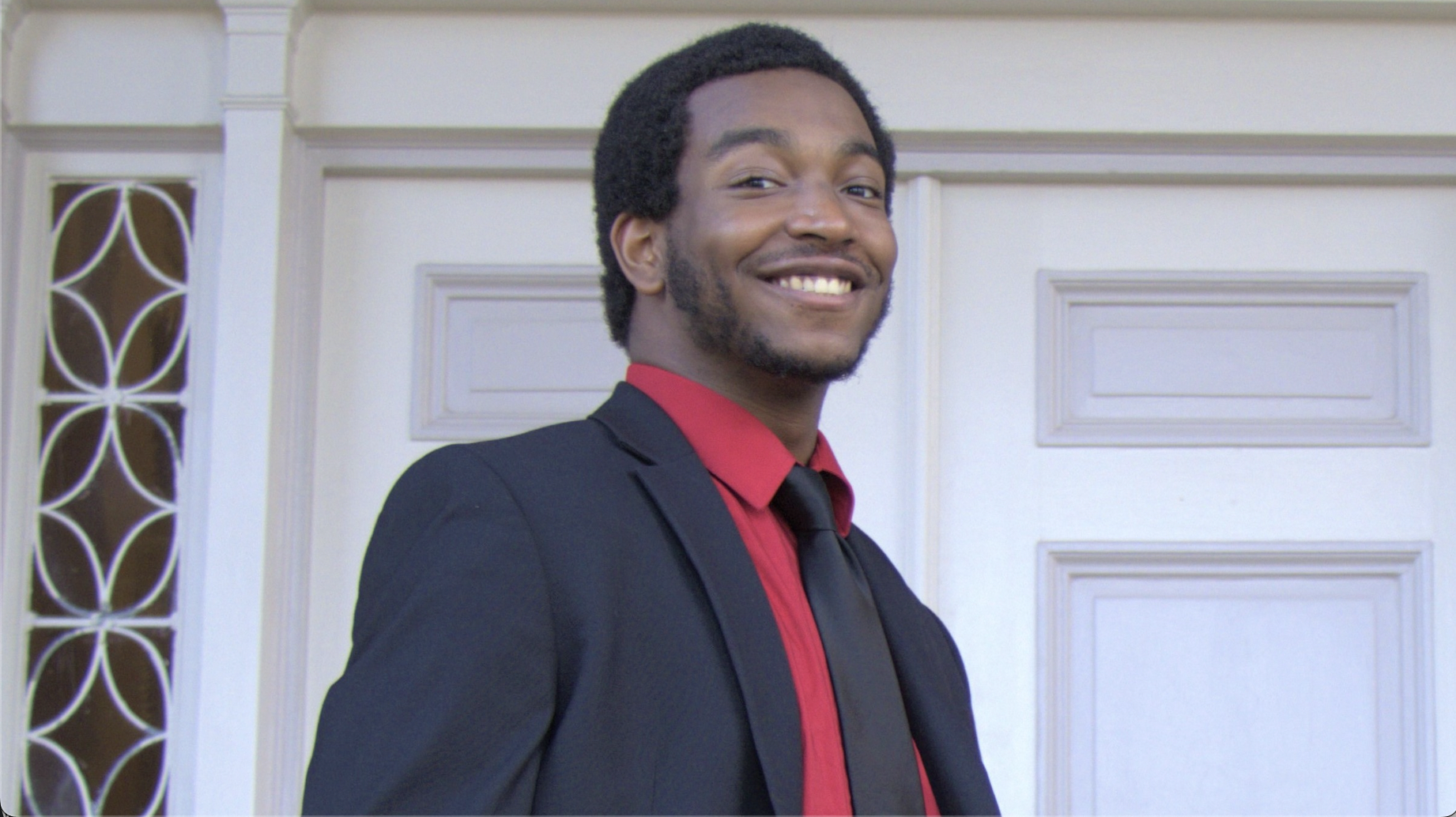Hilton Stallworth, an aspirational third-year student, is set on enacting community-centered change on and beyond NC State’s campus.
Although initially born in California, Stallworth grew up in Fuquay-Varina, North Carolina. He’s the oldest child of four siblings, passionate about creativity and advocating for those who he can.
Since his first year, Stallworth has immersed himself in Student Government (SG) and community-centered organizations. He’s studying Mechanical Engineering with a Spanish minor. Stallworth has served as a Solar House ambassador and on multiple SG committees: the Government Relations and Oversight Committee and Student Affairs Committee.
Stallworth revealed he has been contemplating running for a while. He’s aware that the role and voice of Student Body President is a powerful middleman position that would greatly aid in finding and creating mutually beneficial solutions to improve student life, “I have a real passion for creativity. Creativity is really important to expand beyond fixed ideas [once] you understand the fundamental concepts, you can then use those as tools to apply to your creativity to make something real.”
Outside of SG, he is a member of the Black Campus Ministry, a Goodnight Scholar and a part of Consult your community. He mainly provides free pro bono consulting services to women and/or minority-owned local small businesses.
Stallworth and Nwosu first met through the Howling Wolf Initiative, an NC State initiative Stallworth founded. Stallworth described Nwosu as a motivated, good leader who knows how to find results and facilitate and manage a team.
A particularly unique element, Nwosu is the only candidate not a member of SG. Stallworth states this element provides their ideas a unique depth. Since everyone else is familiar with the workings of student government, Nwosu brought attention to Stallworth that Student Government isn’t the most approachable to students. “I feel like having an outsider’s perspective really strengthens our ticket and will allow us to better serve the students here at NC State University.”
Their campaign is set on ensuring marginalized communities have a seat at the table, including in the conversations held behind closed doors. Stallworth emphasized the importance of being very direct and deliberate when outreaching these groups, “I believe like in a leadership position such as this, we also need to go out into the communities in which we’re servicing to educate ourselves, ask how we can help, then show them that we’re taking actionable steps so that they feel heard.”
Stallworth stated that he believed the key to all solutions is conversation. That is, by working with one another to find something that works for everyone, by working with and ensuring the student life has that sense of community by finding student organizations and cultural centers. And by creating an environment where people can openly come together and meet one another.
“This needs to be a warm community, we feel a sense of belonging. And that’s why I really hope to foster that and like, kind of have that culture of we’re all part of One Pack here…Well, I would say the thing that sets my campaign apart from other tickets is the mission. Home is where the pack is, and like how there’s no place like home, which is like a name that we chose for our platform. We really, really, really would like to see the majority of students to be able to say hey, NCSU is my home.”
Nubian Message had the privilege of speaking with the Student Body President (SBP) Candidate to discuss his platform.
Nubian Message: The creation of an LGBTQ+ Village and a Women of Color Village has been in the works for years. These two villages have been pushed as a joint movement. How do you plan to further propel the work done for these since session 97? Also, why was the LGBTQA+ Village not mentioned on your platform?
Hilton Stallworth: The reason why specifically the Woman of Color Village is mentioned on my platform is because that was a direct suggestion, from a friend of mine. Because a big part of the platform is listening to the students and like saying, “hey, we’re here.” Specifically, why the other one [ the LGBTQ+ Village] wasn’t on our campaign: it wasn’t brought up to us because that was not an original idea of our own … it’s all about the community; And where people feel they can have a voice to where they can say, hey, like, this is my people …. This is essentially what can help us best here at NC State University … So what really works and what makes the gears turn, something that we all learned as engineers is the data, you have to show the data to call for it … It’s all about the supply and demand. If there’s enough demand for this thing, it needs to happen. And so essentially showing the university, “hey, this is what’s going on. This is who’s calling for it. And obviously, very high demand here. What can we do to make this happen?” … creating a strong argument as to why this has great benefits for students. And then from there, hopefully, we get a yes. And if we [get a], yes, continuing to work with university housing, and then the university administration to see them through to fruition.
NM: In your platform, you mentioned DRO Accommodations. You want increased funding for DRO and improved DRO scheduling for exams. How do you plan to accomplish these and through what means?
Stallworth: With the latter half [of your question]. That’s the easier part, I believe, because that’s just switching scheduling around. That’s just increasing the optimization of their system, and finding out how they process exam information … And then creating alternatives for students who might either have overlap, need extended time, or a different setting to take an exam to do their optimal during the test. And so with that, what me and Chima will plan to do is to go out with some members of our cabinet and to approach DRO, and essentially bring the concerns of the students … [For example] Some students have some issues with the testing facilities, it’s not necessarily equitable to everyone, what solution can we come to? Then work with them to say, alright, this is what we’re going to do from here, and then make that happen. So yeah, so essentially, you got to start off with a conversation. And with that conversation: follow up, do more research about what we can do to make this happen … In terms of the funding … Money is difficult for students to really have a big impact on. I know … SG, we have a pretty good say, on student fees. So we can definitely look into and see if student fees are away, we can leverage some more of those to DRO without necessarily raising the student fees too much, or more just moving priorities around.
NM: Your platform discusses leniency on the first-year live-on requirement, A change that has had varied reactions due to the potential negative impact on students. How did you juxtapose the negatives and positives and conclude leniency would enact the positive, permanent change needed to improve student life?
Stallworth: Definitely. So, our slogan “Home is where the pack is” originates from the slogan “Homes is where the heart is.” … we only have four years at college. We believe that with those four years, you should be able to optimize it and make it look like whatever you want it to look like … I have nothing against the value that living on campus as a first-year would have. That’s how you can go to different events, it’s a lot more accessible for some people; especially for those out of state students who don’t have a home to go to. However, I feel like it can be just as beneficial to kind of explore Raleigh, if you want to, to get to the surrounding community. Because one of the best things about NC State is that we’re not just a college campus in the middle of nowhere, we’re in the capital of North Carolina … I believe that no one should ever have to sacrifice their financial well being, or to gain an experience in which they might not choose to opt into, I believe everyone should have a choice to make that for themselves…Yeah, four years here, or more, depending on whichever path you take. Who are we to tell you what you can and can’t do? You’re paying to go here, you are a constituent here at University. This is your choice…I am very in favor of first-year living here on campus. However, if it’s not for you I agree that you should be able to have that jurisdiction.
NM: There has been an increased demand for mental health services nationwide, yet many have remained understaffed. How do you plan to create accessibility to student mental health resources while still being realistic about the bandwidth capabilities of our counseling center?
Stallworth: Well, one of the things the university has done phenomenally this year is they have responded to the situation; which I know everything can be done better. However, I believe that it’s good to acknowledge the progress that we’ve made … And I would say that one of the main solutions to not overrunning these resources is to make sure that we change the culture and make sure that things happen in a very preventative fashion, because if everyone has a mental health crisis, at the same time, we’ll have a cluster of mental health crisis’ is because [if] one person has a crisis, it’s kind of like a domino effect … Essentially, there’s a bunch of different ways we’re going to try and solve this issue. First way is an academic setting. The first part is to just make sure that teachers look after their students, because in terms of making NC State feel more like home, right? … We feel that it’s very important for teachers to be in a mentorship role for their students and for students to feel heard and appreciated within the classroom. Because a lot of students, the main source of mental illness, is the academic stressors … And some of the ideas that we currently have for that [ reduced stressors] are [more class evals]…So one of the things we’re going to try and push for [are] mid-semester class evals … And at the bare minimum, if not training them [professors] how to deal with mental health crises themselves, giving the resources to refer students to … So we really have to make sure that we take preventative measures to make sure that it doesn’t get to [a critical] point … But I believe if a student takes the responsibility to [be vulnerable and] contact the professor . The professor [should] work with you [and provide an] extension. That type of communication and relationship will really help mental health … In terms of community and student life, just making sure everyone’s needs are met. Having good food here on campus — I know, it seems like a first world problem because some people don’t even have food to begin with, we’re also going to collaborate with Feed the Pack to accommodate food insecurity, to make sure everyone has a meal — even for those who have a meal, the diversity food options … So they can maintain their physical health as well, because we all know physical and mental health are very well tied together … And last but not least, the essence of community, because within a community, you have a support system. And that’s another way you don’t have to rely on a mental health professional or a counselor, if you have that support system with your friends and family [and classmates], having that community amongst the students I feel really does help mental health. Professionals are more open to the emergencies where they’re best suited to help.
To learn more about the Stallworth/Nwosu campaign and their platform,, you can go to their website at sites.google.com/view/hiltonchima2023
Your vote matters. We ask that you take the time to review all candidates and their platform’s efforts and choose wisely. Voting will begin Monday, March 6 at 12:01 am and continue through Tuesday, March at 11:59 pm. Results will be announced Wednesday, March, at 7:30 pm.





